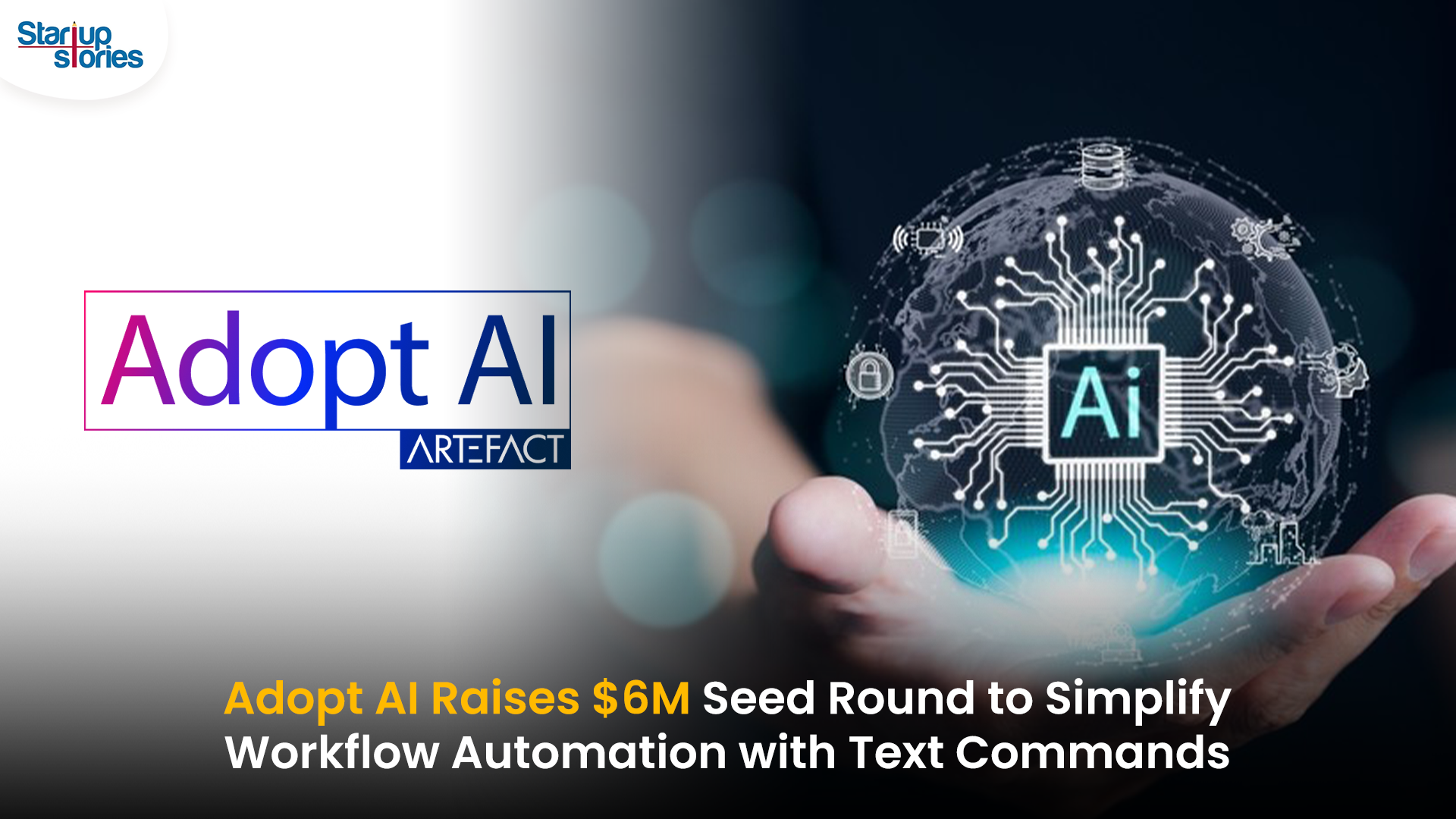Artificial Intelligence
Zoho and NVIDIA Partner to Develop Custom Business-Specific LLMs!

Zoho Corporation has teamed up with NVIDIA to advance the development of large language models (LLMs) specifically tailored for business applications. This collaboration involves integrating NVIDIA’s AI-accelerated computing platform, including the NeMo framework, into Zoho’s Software as a Service (SaaS) offerings. The partnership was announced at the NVIDIA AI Summit in Mumbai on October 24, 2024, and aims to create business-specific LLMs that are accessible to Zoho’s global customer base of over 700,000 users across Zoho.com and ManageEngine.
Investment and Commitment
With an initial investment of USD 10 million in NVIDIA’s AI technology and GPUs, Zoho has pledged an additional USD 10 million for further development in the coming year. This financial commitment underscores Zoho’s dedication to enhancing its AI capabilities and creating innovative solutions for its users.
Focus on Business Applications
Ramprakash Ramamoorthy, Zoho’s Director of AI, emphasized the necessity for LLMs designed with business applications in mind, contrasting them with existing models that often prioritize consumer-focused features. By leveraging NVIDIA’s platform, Zoho aims to develop AI models that integrate seamlessly with its extensive tech stack, optimizing AI’s context-driven capabilities for effective, business-specific insights.
Privacy and Data Security
Privacy is a central priority in Zoho’s AI model development. The company has established rigorous compliance protocols to protect user data while enhancing return on investment for its clients. This commitment to privacy ensures that businesses can utilize AI tools without compromising sensitive information.
Multi-Modal AI Strategy
Zoho has long been an adopter of AI technologies, incorporating artificial intelligence across over 100 products within its ManageEngine and Zoho divisions. Through a multi-modal AI strategy, Zoho provides users with contextual insights that support informed business decision-making. The company is not only developing large language models but also small and medium-sized language models to address various use cases, offering flexibility, cost-efficiency, and scalability tailored to diverse business requirements.
Technical Advancements
Zoho’s LLMs are specifically designed without customer data training, ensuring robust privacy protections. The collaboration with NVIDIA allows Zoho to utilize advanced technologies such as:
- NVIDIA Hopper GPUs: Enhancing the performance of AI model training and inference.
- NeMo Framework: A powerful tool for building and training neural network models efficiently.
Vishal Dhupar, Managing Director for NVIDIA Asia South, noted that this partnership accelerates the development of diverse AI models by leveraging NVIDIA’s cutting-edge technology.
Performance Improvements
Zoho is also utilizing NVIDIA TensorRT-LLM, achieving a notable 60% increase in throughput and a 35% reduction in latency compared to previous frameworks. Further optimization on NVIDIA’s infrastructure allows Zoho to expedite workloads like speech-to-text, positioning its LLM offerings to deliver cutting-edge, AI-driven solutions across industries.
Conclusion
The partnership between Zoho and NVIDIA represents a significant step forward in the development of tailored AI solutions for businesses. By focusing on creating custom LLMs that prioritize privacy and contextual relevance, both companies aim to empower organizations with advanced tools that enhance productivity and decision-making.
As this collaboration unfolds, it will be interesting to observe how these innovations impact the broader landscape of enterprise software and artificial intelligence. With a strong commitment to privacy and performance, Zoho is well-positioned to lead in the rapidly evolving field of business-specific AI applications.
Artificial Intelligence
Adopt AI Secures $6 Million to Power No-Code AI Agents for Business Automation

Adopt AI, a San Jose and Bengaluru-based agentic AI startup, has raised $6 million in seed funding led by Elevation Capital, with participation from Foster Ventures, Powerhouse Ventures, Darkmode Ventures, and angel investors. The funding will be used to expand the company’s engineering and product teams and to scale enterprise deployments of its automation platform.
Founded by Deepak Anchala, Rahul Bhattacharya, and Anirudh Badam, Adopt AI offers a platform that lets businesses automate workflows and execute complex actions using natural language commands, without needing to rebuild existing systems. Its core products include a no-code Agent Builder, which allows companies to quickly create and deploy AI-driven conversational interfaces, and Agentic Experience, which replaces traditional user interfaces with text-based commands.
The startup’s technology is aimed at SaaS and B2C companies in sectors like banking and healthcare, helping them rapidly integrate intelligent agent capabilities into their applications. Adopt AI’s team includes engineers from Microsoft and Google, with Chief AI Officer Anirudh Badam bringing over a decade of AI experience from Microsoft.
The company has also launched an Early Access Program to let businesses pilot its automation solution and collaborate on new use cases.
Artificial Intelligence
Social Media Platforms Push for AI Labeling to Counter Deepfake Risks

Social media platforms are intensifying efforts to combat the misuse of deepfake technology by advocating for mandatory AI labeling and clearer definitions of synthetic content. Deepfakes, created using advanced artificial intelligence, pose significant threats by enabling the spread of misinformation, particularly in areas like elections, politics, and personal privacy.
Meta’s New Approach
Meta has announced expanded policies to label AI-generated content across Facebook and Instagram. Starting May 2025, “Made with AI” labels will be applied to synthetic media, with additional warnings for high-risk content that could deceive the public. Meta also requires political advertisers to disclose the use of AI in ads related to elections or social issues, aiming to address concerns ahead of key elections in India, the U.S., and Europe.
Industry-Wide Efforts
Other platforms like TikTok and Google have introduced similar rules, requiring deepfake content to be labeled clearly. TikTok has banned deepfakes involving private figures and minors, while the EU has urged platforms to label AI-generated media under its Digital Services Act guidelines.
Challenges Ahead
Despite these measures, detecting all AI-generated content remains difficult due to technological limitations. Experts warn that labeling alone may not fully prevent misinformation campaigns, especially as generative AI tools become more accessible.
Election Implications
With major elections scheduled in 2025, experts fear deepfakes could exacerbate misinformation campaigns, influencing voter perceptions. Social media platforms are under pressure to refine their policies and technologies to ensure transparency while safeguarding free speech.
Artificial Intelligence
Transforming India’s AI Landscape: OpenAI and Meta’s Collaborative Talks with Reliance Industries

OpenAI and Meta Platforms are reportedly in discussions with India’s Reliance Industries to explore potential partnerships aimed at enhancing their artificial intelligence (AI) offerings in the country. This development underscores India’s growing significance in the global AI landscape.
Key Aspects of the Discussions
- Partnership with Reliance Jio: One of the main focuses is a potential collaboration between Reliance Jio and OpenAI to facilitate the distribution of ChatGPT in India. This could enable wider access to advanced AI tools for businesses and consumers, leveraging Reliance’s extensive telecommunications network.
- Subscription Price Reduction: OpenAI is considering reducing the subscription cost for ChatGPT from $20 to a more affordable price, potentially just a few dollars. While it is unclear if this has been discussed with Reliance, such a move could significantly broaden access to AI services for various user demographics, including enterprises and students.
- Infrastructure Development: Reliance has expressed interest in hosting OpenAI’s models locally, ensuring that customer data remains within India. This aligns with data sovereignty regulations and addresses growing concerns about data privacy. A planned three-gigawatt data center in Jamnagar, Gujarat, is expected to serve as a major hub for these AI operations.
Market Implications
These potential partnerships reflect a broader trend among international tech firms aiming to democratize access to AI technologies in India. If successful, they could reshape India’s AI ecosystem and accelerate adoption across various sectors. As negotiations continue, stakeholders are closely monitoring how these alliances may impact India’s technological landscape and its position as a leader in AI innovation.














am2rf
June 5, 2025 at 3:37 pm
cost of clomiphene without insurance clomid reddit can i order generic clomid pills can i get cheap clomiphene no prescription where can i buy generic clomiphene price order generic clomiphene without insurance cheap clomid prices
GO88
November 7, 2025 at 7:20 pm
Tham gia cộng đồng game thủ tại Go88 để trải nghiệm các trò chơi bài, poker phổ biến nhất hiện nay.
MM88
November 9, 2025 at 11:59 am
Khám phá thế giới giải trí trực tuyến đỉnh cao tại MM88, nơi mang đến những trải nghiệm cá cược thể thao và casino sống động.
站群程序
November 10, 2025 at 5:44 am
搭载智能站群程序,自动化搭建与管理,为SEO项目提供核心驱动力。站群程序
J88
November 12, 2025 at 4:32 pm
Đến với J88, bạn sẽ được trải nghiệm dịch vụ cá cược chuyên nghiệp cùng hàng ngàn sự kiện khuyến mãi độc quyền.
谷歌站群
November 14, 2025 at 4:56 pm
专业构建与管理谷歌站群网络,助力品牌实现全域流量的强势增长。谷歌站群
Kuwin
November 19, 2025 at 1:37 am
kuwin sở hữu kho game đa dạng từ slot đến trò chơi bài đổi thưởng, mang đến cho bạn những giây phút giải trí tuyệt vời.
iwin
November 19, 2025 at 11:50 pm
iwin – nền tảng game bài đổi thưởng uy tín, nơi bạn có thể thử vận may và tận hưởng nhiều tựa game hấp
MM88
November 26, 2025 at 7:26 am
Với giao diện mượt mà và ưu đãi hấp dẫn, MM88 là lựa chọn lý tưởng cho các tín đồ giải trí trực tuyến.